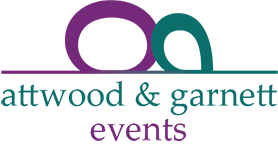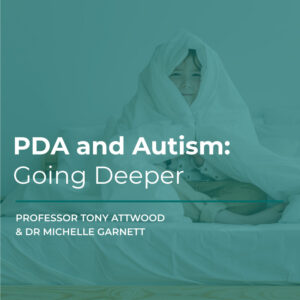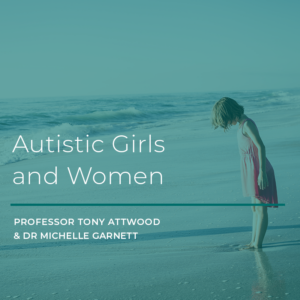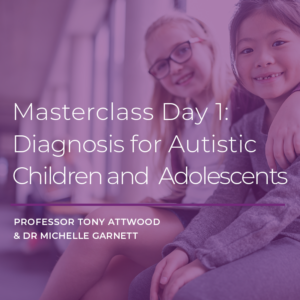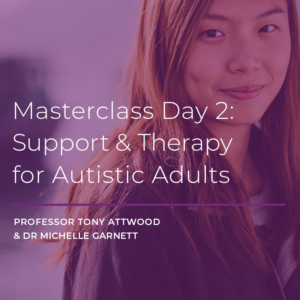Description
About the speakers

Prof Tony Attwood PhD With a remarkable career spanning five decades, Professor Tony Attwood is one of the world’s foremost specialists on Autism. Holding an Honour’s degree in Psychology from the University of Hull, a Master’s degree in clinical psychology from the University of Surrey, and a PhD from the University of London, his credentials are a testament to his expertise. Currently serving as an adjunct Professor at Griffith University in Queensland, Professor Attwood’s impact has enriched the global understanding of autism.
Alongside Dr Michelle Garnett, Professor Attwood co-founded Attwood & Garnett Events in 2019, driven by the shared goal of enhancing autism awareness and understanding. Their shared vision seeks to reshape the narrative surrounding autism to create a world where autism is embraced, and the diverse strengths, talents, and perspectives of autistic individuals are celebrated. This transformative narrative fosters a more inclusive and accepting society, benefitting all its members.
Renowned for his extensive contributions to understanding Asperger’s Syndrome, now commonly referred to as autism, Professor Attwood has authored numerous publications on the subject. His seminal book, Asperger’s Syndrome: A Guide for Parents and Professionals debuted in 1998, resonated globally and has since found its voice in over 25 languages, making his insights accessible across cultures and continents.
With a dedicated commitment to practical application, he has run a private practice for 30 years, only recently closing his books due to a long waiting list. Beyond his clinical work, he dedicates significant time to travel, sharing insights and knowledge through workshops and seminars across national and international platforms.

Dr Michelle Garnett PhD is a clinical psychologist with more than 30 years of specialising in autism. In 2005, she founded Minds & Hearts, a clinic specialised to autism, where she served as Clinical and Managing Director for 14 years until 2019. Alongside Tony Attwood she co-founded Attwood & Garnett Events in 2019, aiming to enhance autism awareness and understanding with a vision to foster a neuro-affirming community.
In addition to her extensive private practice, Dr Garnett has significantly contributed to autism research, authored influential books, and engaged in impactful speaking engagements. Her peer-reviewed research has informed our understanding of early autism identification, the female autism profile, and the link between mental health and positive outcomes in autistic individuals. She has co-authored six respected books on autism, including the influential Spectrum Women: Walking to the Beat of Autism (2018) with Barb Cook, a seminal work on the female autism experience. Her recent books, Having Fun with Feelings on the Autism Spectrum and Ten Steps to Reducing Your Child’s Anxiety on the Autism Spectrum offer invaluable guidance to parents of young autistic children.
Dr Garnett is a sought-after presence in academic circles, presenting as a Keynote Speaker at conferences and conducting workshops, seminars, and training sessions on autism across Australia, the UK, and Europe. Her influence extends to universities, autism organisations, government, and non-governmental bodies, solidifying her reputation as a prominent figure in the autism field. Dr Garnett is autistic and has ADHD, late diagnosed.
Module Breakdown
Module 1 – Prevalence and gender ratio in ASD, use of DSM-5 criteria, assessing for co-morbidity and latest research, importance of alexithymia, psychological reactions to being different and screening for depression.
Module 2 – Initial screening and diagnostic tools – review and recommendations. Discussion of camouflage and personality types in autism. Guidelines for the pre-diagnostic interview and the interview process.
Module 3 – How to assess the areas of catatonia, sensory sensitivity and clinical impairment in autism. A live diagnostic assessment with an adult conducted by Tony. Questions and answers.
Module 4 – Differential and co morbid diagnoses, including PTSD and complex PTSD, BPD, eating disorders, gender identity, addiction and schizophrenia. How to explain the diagnosis, reactions to the diagnosis and prognosis
